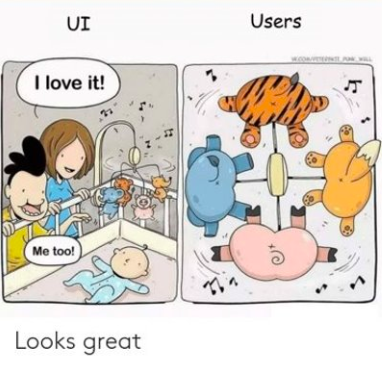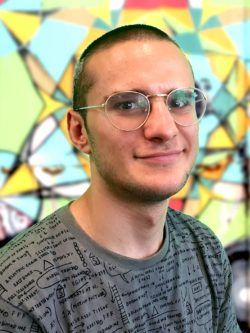Doing policy the right way round
What can go wrong when we make policy without understanding how people are actually living their lives? Theo Cox reflects on this week's ABC Chat with Charlotte Augst.
As each day blurs into the next and our sources of excitement become increasingly mundane (anyone else getting a bit too into zoom backgrounds?), it’s nice to have something genuinely fresh to look forward to.
For us, and we hope for you too, that thing is the next episode of ABC Chat, complete with a brand new guest to join the conversation. This week we were joined by Charlotte Augst of National Voices, who made a thought provoking and inspiring call to include a diversity of lived experience in health policy-making.
Charlotte’s humorous illustration of what can happen when we don’t consider the user perspective (below) grounded a more sobering point: failing to understand the experiences of those affected by policy can lead to blind spots, and it is in these blind spots that harm happens.

The tragedy of Grenfell Tower, which occurred despite residents repeatedly informing decision-makers that the building was a fire trap, is an example of just such harm. Charlotte rightly warned that, in the uncharted decision-making territory characterising the current crisis, we risk repeating similar tragedies if we do not treat the evidence of lived experience with the importance it deserves.
So what can we do? First, Charlotte told us we cannot expect diverse perspectives to be represented in decisions if those making them are not themselves diverse. Within and beyond health and care we need to do better to ensure the varied experiences in our society are represented in the upper levels of power.
Within and beyond health and care we need to do better to ensure the varied experiences in our society are represented in the upper levels of power.
Second Charlotte gave a piece of advice to policymakers: “you can’t know the whole world”. Drawing on organisations and community groups that are closer to the issues at hand is vital in ensuring your decisions are properly informed.
Finally, we must remember that policies are almost never designed to harm others. Avoiding harm, then, can be as simple as taking the right perspective. It is about looking at the world the right way around, and that often means from the bottom up.
ABC Chat stands for Apart But Connected: half an hour of connection and conversation about health and care, Thursdays at 11am. Can we help you with your conversations? Get in touch.
 Theo Cox30 April 2020
Theo Cox30 April 2020

Comments